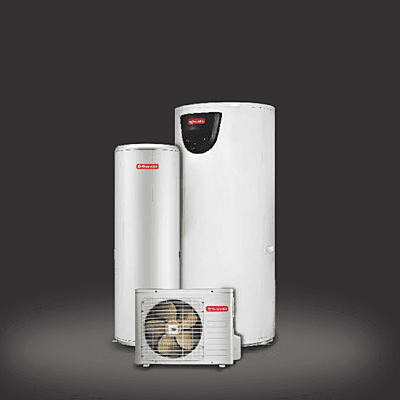Residential Heat Pumps
Residential heat pumps offer several advantages for homeowners as an energy-efficient and versatile heating and cooling solution. Here are some of the key benefits of residential heat pumps:
Energy Efficiency: Heat pumps are highly energy-efficient because they move heat rather than generating it, making them a cost-effective way to heat and cool your home. They can provide up to 2-3 times more heating or cooling energy than the electrical energy they consume.
Versatility: Heat pumps provide both heating and cooling in a single system, eliminating the need for separate heating and cooling systems. This versatility can save on installation costs and reduce the space required for HVAC equipment.
Lower Operating Costs: Due to their energy efficiency, heat pumps can lead to lower utility bills compared to traditional heating and cooling systems, especially in moderate climates where they can be the primary source of temperature control.
Environmental Friendliness: Heat pumps have a lower carbon footprint compared to conventional heating methods because they use electricity to move heat rather than burning fossil fuels. This can help reduce greenhouse gas emissions and contribute to a more environmentally friendly home.
Consistent Comfort: Heat pumps provide even and consistent heating and cooling, maintaining a comfortable temperature throughout your home without hot or cold spots.
Long Lifespan: Well-maintained heat pumps have a relatively long lifespan, often exceeding 15 years, which can lead to cost savings over time.
Quiet Operation: Heat pumps are known for their quiet operation, making them less disruptive than some traditional HVAC systems, such as furnaces or air conditioners.
Zoning Capabilities: Heat pumps can be equipped with zoning systems, allowing you to control the temperature in different areas or rooms of your home independently, which can improve energy efficiency and comfort.
Reduced Carbon Monoxide Risk: Since heat pumps don't burn fossil fuels, they don't produce carbon monoxide, reducing the risk of carbon monoxide poisoning.
Rebates and Incentives: Many governments and utility companies offer rebates and incentives to homeowners who install energy-efficient heat pumps, helping to offset the initial installation cost.
Supplemental Heating and Cooling: Heat pumps can be used in conjunction with other heating and cooling systems to provide supplemental heating or cooling during extreme weather conditions, increasing the system's flexibility.
It's important to note that the effectiveness of a heat pump may vary depending on the climate in your region. Heat pumps are most efficient in moderate climates, where the temperature doesn't consistently drop below freezing. In colder climates, it may be necessary to have a backup heating source, such as a furnace, to provide heat during very cold periods. Additionally, the initial cost of purchasing and installing a heat pump can be higher than traditional heating and cooling systems, but the long-term energy savings can offset this initial investment.





